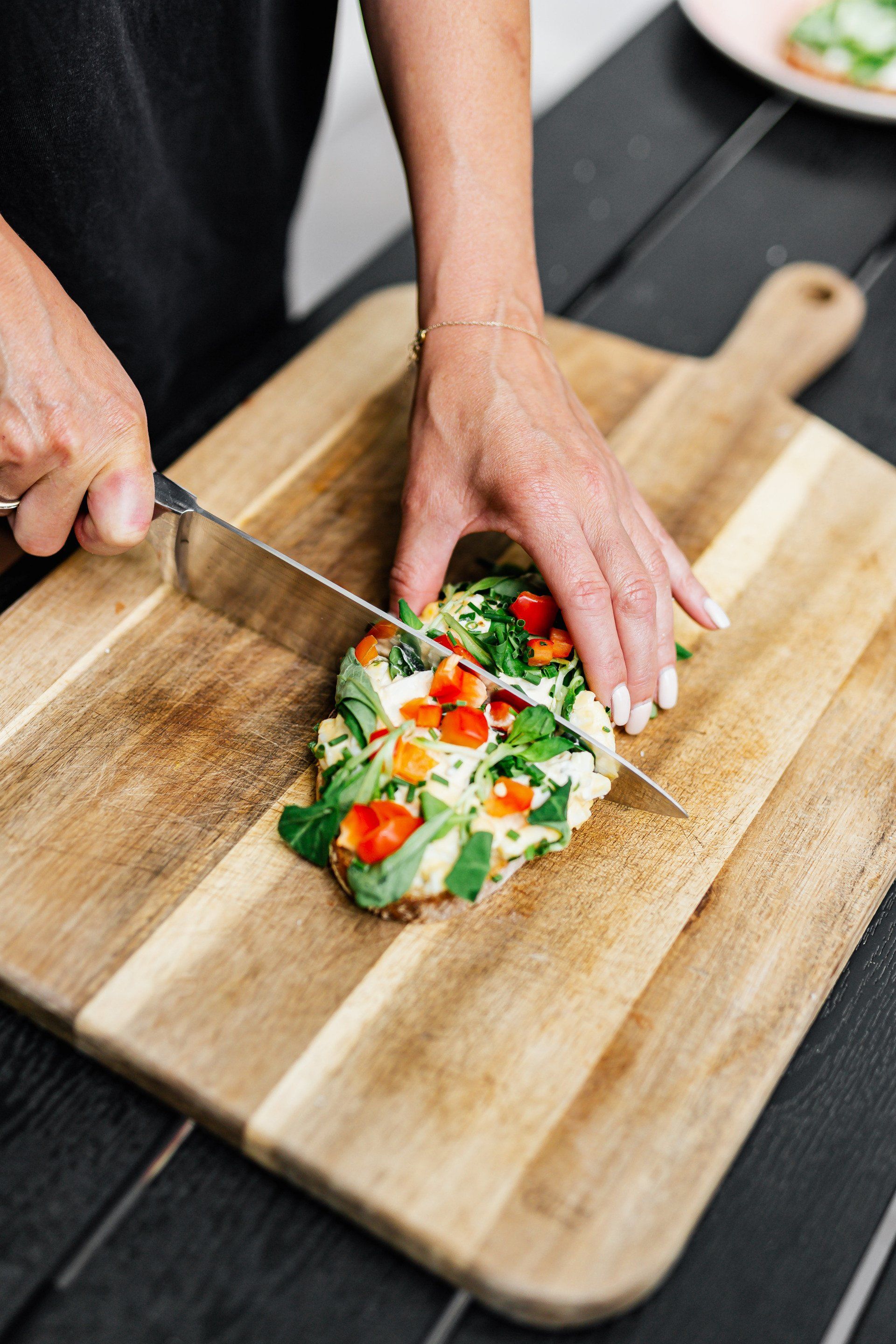Cooking for One or Two
You may find you’re stuck with a fridge full of leftovers or throwing a lot of food away. Sometimes, eating out or grabbing an unhealthy snack seems easier than cooking a meal. However, healthy eating is crucial to independent living, and with a bit of thought and planning, you can easily adjust to cooking for one or two.
The following tips will make cooking for one or two easier, help you eat healthier, minimize food waste, and save money.
5 Tips for Cooking for One (or Two)
#1. Make a Plan
If you take a few minutes to create a weekly meal plan and grocery list, you’ll save a lot of money and stress. When there are a lot of people in the house, you can buy an abundance of food because you know “someone” will probably eat it, but when just one or two people are eating the food, you need to give it a little more thought, or you’ll end up throwing a lot of food away.
First, plan what you will eat that week – breakfast, lunch, dinner, and snacks. You may want to look at your local grocery ad to see what’s on sale or go to your recipe box. Look at what you already have on hand, and then create a grocery list.
Also, think about how much of each item on the list you need. You have basically two options. You can try to buy just what you need. For example, the deli can give you just a quarter pound of lunch meat, and many grocery stores allow you to buy just one potato or peach. The second option is to buy in bulk and freeze what you don’t need (see more below). Often, it’s cheaper to buy items in larger quantities. However, it isn’t worth it if you’re just going to throw the food away.
#2. Keep Staples on Hand
Staples are those foods that you frequently use. Buying these items when they’re on sale or in quantity can save you money, and always having them on hand is… well… handy. “Having a well-stocked pantry and fridge is like money in the bank,” the
Food Network states. “The trick is figuring out what to stock up on and what you will likely never use.”
You may want to consider buying some staples (like rice and pasta) in bulk and putting them in airtight containers to quickly take out what you need.
Here is
a list of a few staples you may want to consider having on hand:
- Vegetable oil
- Salt
- Pepper
- Extra virgin olive oil
- Flour
- Sugar
- Baking soda
- Beans
- Rice
- Pasta
- Breadcrumbs
- Crackers
- Spices
- Condiments
- Bacon
- Bread
- Frozen vegetables
#3. Embrace Your Freezer
The freezer can be your best friend when cooking for one or two because it extends the life of many foods. You may be surprised by what does
freeze well. Of course, some foods should not be frozen, such as lettuce, mayonnaise, and sour cream.
You can freeze staples, such as frozen veggies. You can make a batch of soup or a casserole and freeze what you don’t eat in individual containers. Bread is a good thing to freeze because it can be challenging for one or two people to eat an entire loaf before it gets moldy. When you want bread, take a couple of pieces out and let it thaw or toast it.
#4. Learn How to Adjust Recipes
Maybe you don’t want a lot of leftovers and just want to make enough for one meal. You can often adjust a recipe for four to a recipe for two by simply cutting the ingredients in half. Sometimes, recipes online allow you to choose the number of servings you want, and it will adjust the quantity of each ingredient.
#5. Have a Cache of Go-To Recipes
Some recipes are quick and easy to make for one or two people, such as omelets (not just for breakfast and a great way to get rid of leftover meats and veggies), stir fry, sandwiches, quesadillas, and pasta. Also, keep a few recipes you really like handy to make meal planning easier.
Independent Living Options to Consider
Whether you choose to age in your home or opt for one of Phoebe’s independent living communities, healthy eating is crucial to your health and well-being. Want to learn more about our compassionate in-home services or independent living communities? Contact us today at 610-625-5206 or connect with us online.
More From Our Blog
✔︎ Locally owned and operated,
Dedicated to our local community.

Berks County Office
Comforting Home Care by Phoebe
1 Reading Dr
Wernersville, PA 19565
Phone: 610-625-5206
Lehigh Valley Office
Comforting Home Care by Phoebe
1925 W. Turner Street
Allentown, PA 18104
Phone: 610-625-5600
The region's premier home care provider in Berks, Bucks, Lehigh, and Northampton Counties, including Allentown, Bath, Bethlehem, Easton, Emmaus, Fleetwood, Fogelsville, Hamburg, Hellertown, Hereford, Kutztown, Laurys Station, Leesport, Macungie, Mertztown, Mohnton, Nazareth, New Tripoli, Northampton, Oley, Orefield, Quakertown, Reading, Richlandtown, Robesonia, Schnecksville, Shillington, Shoemakersville. Sinking Spring, Temple, Topton, Trexlertown, Wernersville, Whitehall, Womelsdorf, Wyomissing, & Zionsville,
© Copyright 2023 | All Rights Reserved | Comforting Home Care by Phoebe
Website by Power Marketing International











